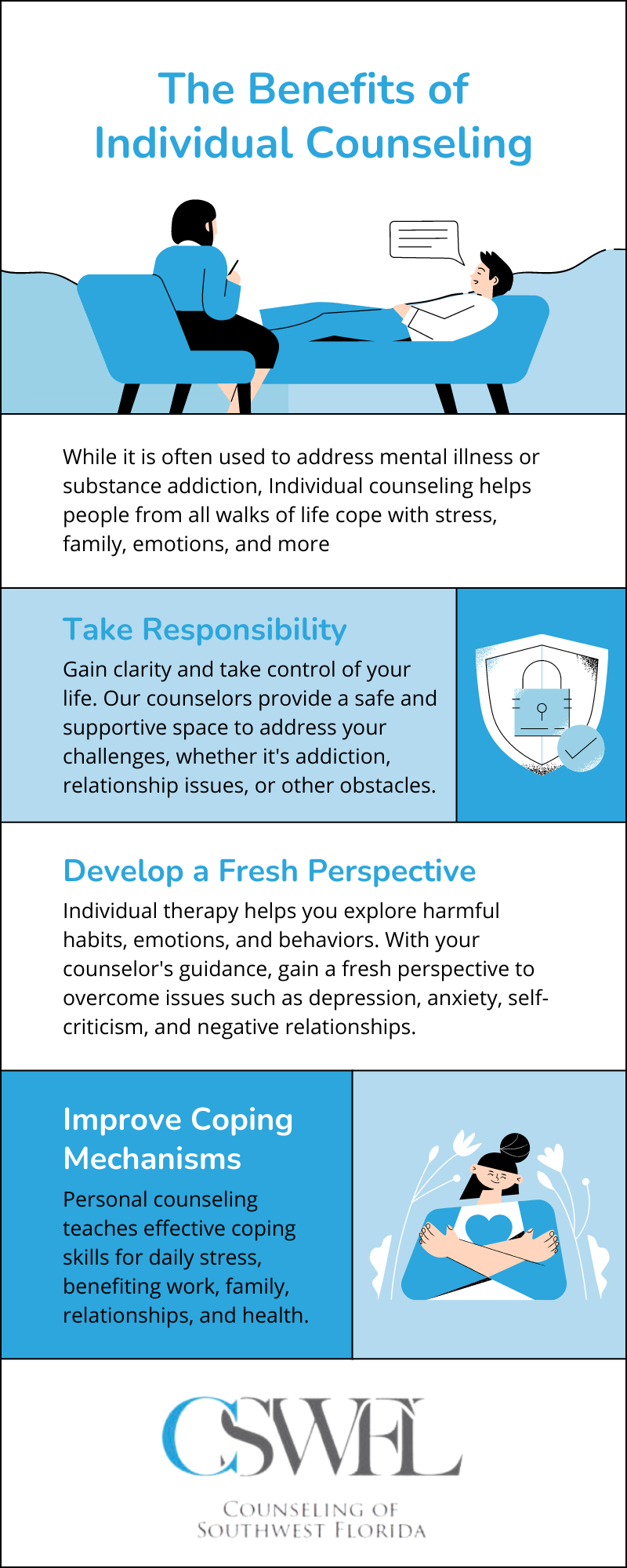7 proven strategies Individual Therapy For Teens helps manage stress and anxiety
Wiki Article
Discovering the Advantages of Psychological Treatment for Teenage Well-Being and Growth
Psychological treatment plays a crucial role in the well-being and development of teenagers. Teenage years is a tumultuous period noted by psychological and social obstacles. Treatment supplies a structured atmosphere for teens to express their sensations and confront their struggles. It equips them with necessary devices for strength and communication. As they navigate this developmental stage, the effect of therapy can be extensive. What specific advantages can emerge from such support throughout these formative years?
Understanding the Teenage Mind: Pressures and challenges
As adolescents browse the complexities of their developmental stage, they encounter countless obstacles and stress that can significantly affect their psychological health. This period is marked by considerable physical, emotional, and social changes, which can induce feelings of complication and unpredictability. Peer influence intensifies, usually leading to a battle for approval and identity. Academic assumptions can develop extra stress and anxiety, as the stress to excel places in an increasingly competitive atmosphere.Additionally, the advent of social networks introduces a new layer of intricacy, where contrasts to curated online characters can aggravate feelings of insufficiency and stress and anxiety. These elements can lead to psychological distress, including stress and anxiety, clinical depression, and low self-esteem. Understanding these obstacles is crucial for moms and dads, educators, and psychological wellness experts, as it provides insight into the teen experience and highlights the need for helpful interventions to promote durability and health during this crucial developmental phase.
Creating a Safe Area for Expression
Producing a secure space for expression is crucial for adolescents maneuvering their turbulent developing stage. In therapeutic setups, this setting fosters open discussion, enabling teens to connect their sensations without worry of judgment. Such areas allow them to explore their emotions and ideas, which is essential for recognizing their identifications and experiences.When teenagers really feel safe, they are most likely to share their battles, including stress and anxiety, anxiety, or interpersonal conflicts. This open interaction can bring about much deeper understandings and help with personal growth.
Furthermore, a risk-free space urges creative thinking and self-reflection, giving young adults the flexibility to share themselves with numerous electrical outlets, such as art or writing. Establishing trust fund between the specialist and the adolescent is critical, as it underpins the performance of the healing process. Ultimately, producing a risk-free space for expression functions as a structure for psychological recovery and personal growth during these developmental years.
Developing Coping Techniques and Strength

Specialists commonly introduce methods such as mindfulness, journaling, and analytical skills, making it possible for teens to handle their reactions better. In addition, by engaging in role-play circumstances, they exercise how to deal with tight spots, strengthening their self-confidence. Over time, these abilities foster a feeling of agency, equipping teenagers with the devices to browse life's unpredictabilities. The advancement of resilience not just aids in overcoming prompt obstacles but additionally lays the foundation for much healthier psychological actions in their adult years, ultimately adding to lifelong wellness.
Enhancing Communication Skills
Efficient communication abilities are important for teens as they browse complex social landscapes. Mental therapy plays an essential function in enhancing these skills, enabling teenagers to express their emotions and ideas extra plainly. Via assisted sessions, therapists urge teens to verbalize their feelings, helping with far better understanding in peer communications and family members characteristics.Therapy supplies a safe space for practicing energetic listening, empathy, and assertiveness. These skills encourage young adults to participate in purposeful discussions, willpower conflicts, and develop more powerful relationships. As they find out to communicate a fantastic read efficiently, they likewise obtain self-confidence in their ability to support for themselves and their needs.
Additionally, enhanced interaction skills add to psychological knowledge, enabling teenagers to identify and react to the emotions of others. This alternative advancement cultivates a helpful setting, inevitably promoting total well-being and social combination. Via psychological treatment, young adults can grow these important skills for a healthier social experience.
Cultivating Individual Development and Self-Discovery
Fostering personal growth and self-discovery in young adults entails a multifaceted technique that urges understanding of individual identification. This procedure likewise emphasizes the significance of structure strength skills and enhancing emotional understanding. Together, these elements create a foundation for much healthier, more certain individuals as they navigate their developmental years.Comprehending Personal Identification
Just how do teens browse the facility landscape of individual identity as they seek for self-discovery and growth? During this formative duration, they face various impacts, including peers, household, and social assumptions. Mental treatment can act as a crucial tool, providing a risk-free space for expedition and representation. Through led conversations, teens can express their sensations and thoughts, allowing them to comprehend their needs, beliefs, and worths. This process cultivates a deeper recognition of their special identity, encouraging them to make educated options and create a feeling of purpose. As they participate in self-discovery, they learn to embrace their originality and browse challenges with greater quality, eventually improving their overall health and individual growth.Building Durability Skills

Enhancing Psychological Understanding
Enhancing psychological understanding is crucial for teens navigating the complexities of teenage years, as it permits them to determine and recognize their sensations a lot more efficiently. By participating in psychological therapy, adolescents discover to identify their psychological responses and the triggers behind them. This process fosters individual development and self-discovery, allowing them to express their feelings and manage difficulties extra expertly. As teenagers create psychological awareness, they grow empathy, improve connections, and improve communication skills. Additionally, this enhanced recognition help in decision-making, aiding them navigate public opinions and establish a sense of identification. Eventually, fostering psychological awareness with treatment can cause much healthier coping mechanisms and a more balanced mood, essential for growing throughout these developmental years.Building Healthy Relationships and Assistance Equipments
While going across the intricacies of teenage years, building healthy relationships and assistance systems is essential for teenagers. These connections provide psychological stability and a sense of belonging, crucial during this developing phase. Positive relationships with peers, family members, and coaches can enhance self-confidence and resilience, enabling teenagers to navigate difficulties better.Psychological treatment plays a critical duty in promoting these relationships by equipping adolescents with interaction and conflict-resolution skills. Through therapy, they find out to reveal their feelings, recognize different read review point of views, and develop limits, which are basic for preserving healthy and balanced interactions.
Supportive networks urge teenagers to look for help when required, lowering isolation and promoting mental health. They are extra most likely to involve in constructive actions and make notified decisions when adolescents feel linked to their support systems (Individual Counselling Services). In general, the farming of healthy and balanced relationships and assistance systems is instrumental in advertising adolescent wellness and individual development
Frequently Asked Questions
Just how Do I Discover a Qualified Specialist for My Teen?
To find a qualified specialist for a young adult, one ought to seek recommendations from doctor, research study credentials on the internet, examine reviews, and identify the therapist specializes in teen concerns, cultivating a supportive environment for growth.What Are the Expenses Associated With Psychological Treatment for Teens?
The prices connected with mental treatment for teens differ commonly, normally varying from $50 to $250 per session. Insurance policy protection, moving range costs, and local resources can influence price and access for families seeking support.
Just How Usually Should Teenagers Attend Treatment Sessions?
Teens need to preferably go to treatment sessions regular or biweekly, depending on specific requirements. Constant sessions can promote a risk-free space for expression, while permitting therapists to keep an eye on development and adjust methods effectively over time.Can Therapy Work for All Teens?
Treatment can be effective for numerous teenagers, but specific outcomes differ. Variables such as personal situations, visibility to the procedure, and the healing strategy employed all affect its effectiveness for every adolescent.What Should Parents Do Throughout Their Teen's Therapy Refine?
Moms and dads should actively support their teenager's therapy process by maintaining open communication, appreciating confidentiality, participating in sessions if invited, and encouraging their child's efforts (Individual Counselling Services). Recognizing and persistence are important as teens navigate their individual development journeyPsychological treatment plays a crucial duty in the health and growth of teenagers. By involving here in mental therapy, teens discover to recognize their psychological reactions and the triggers behind them. Mental treatment plays a critical duty in fostering these relationships by furnishing adolescents with interaction and conflict-resolution abilities. Young adults must preferably go to treatment sessions once a week or biweekly, depending on private needs. Moms and dads should proactively sustain their young adult's treatment process by keeping open communication, respecting privacy, participating in sessions if welcomed, and urging their kid's efforts.
Report this wiki page